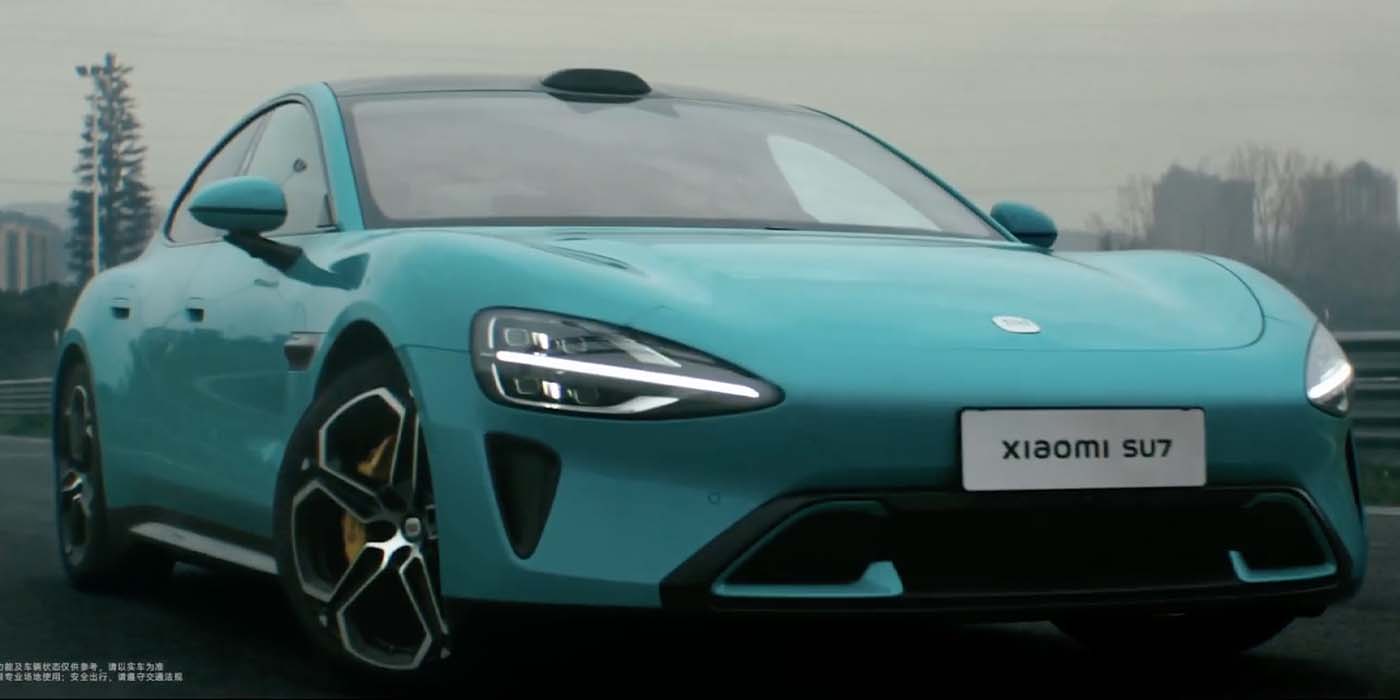
Chinese smartphone maker Xiaomi’s debut into the EV universe, the SU7, has been a hit in China and is set to easily surpass production goals of 100,000 units one month early. To boost that momentum, driven by ambitions to build a global EV empire, Xiaomi now expects to complete the construction of an expansion of its EV factory in mid-2025, which should ramp up its numbers even more – at least, that’s the aim.
Reuters reports that the second phase of the Xiaomi Intelligent Manufacturing Industrial Base is scheduled to be completed on June 15, according to Chinese government-backed National Business Daily.
According to the report, workers were working overtime to finish the project, which is the second phase of a two-part plan to build a factory capable of producing up to 300,000 vehicles. Xiaomi’s factory, as well as its auto unit’s headquarters and sales and research units are all located in Beijing’s Yizhuang New Town, an economic development area outside the city and hotspot for high-tech firms, including company JD.com and Baidu.
Last December, Xiaomi debuted its first vehicle, the SU7, which officially launched in March, offering three versions – Standard, Pro, and Max, with the Standard starting at $30,761. A souped-up hypercar version, the Ultra, has also been unveiled.
The SU7 sedan was designed to compete with the Tesla Model 3, and has quickly emerged as a major EV brand in China, with 70,000 units of the vehicle sold by the end of September since delivery started in March, Reuters reports. Of course, analysts have predicted the company would lose money on its SU7, to the tune of around $10,000 a vehicle, but the smartphone maker has a tidy cash reserve of $15 billion to help it weather the storm.
While facing plenty of competition in China from the likes of BYD, the company has, for one, tremendous brand appeal to the Chinese consumer, who are already familiar with its products and user interfaces. In addition to an alluring price point, the SU7 is a connected car that syncs with other devices. Compared to other EV makers, Xiaomi, too, has an edge on software and a jumpstart on autonomous driving, which it has been testing on roads for a few years.
The company says it plans to invest $10 billion over the next 10 years in building its EV empire, reports have said. By the end of the year, the company expects to expand to 22 sales stores, 135 service centers, and 53 delivery hubs in 59 cities, Electrek’s Scooter Doll reported.
CnEVPost reported earlier this month that Xiaomi had completed its cumulative delivery target of 100,000 units of the Xiaomi SU7 series ahead of schedule in November, with its new target to deliver 120,000 units by the end of 2024.
FTC: We use income earning auto affiliate links. More.




Comments